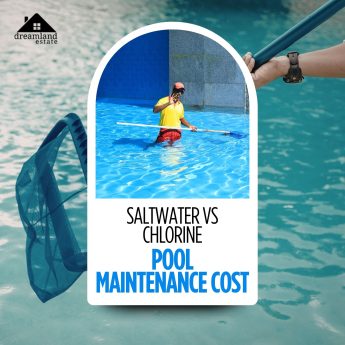Real Estate Advice: Ten Things Your Agent Might Not Be Able To Tell You

While real estate agents are valuable resources for information related to buying and selling properties, there are certain questions that they may not need to answer or might not have the information readily available. There are even some things your real estate agent isn’t allowed to give you advice on or risk losing their license.
When buying a new home, it’s essential to be willing to do your own research and dive deep in order to find the best neighborhood and home for your family.
Here are some questions that real estate agents may not necessarily be expected to answer:
Market Predictions

One of the things your real estate agent might not be willing to advise you on is market changes. While your agent can offer insights into current market conditions, predicting future trends is challenging and often beyond their expertise.
Many agents won’t be comfortable giving you advice on how you should plan for the future as it concerns the housing market or future interest rates. If you are looking for an accurate market forecast you may want to consult with a professional who specializes in economic or market analysis.
Personal Financial Advice
Another area where your real estate agent won’t be able to help you is with your personal finances beyond real estate matters. While agents are knowledgeable about real estate transactions, they aren’t financial advisors and can’t give general financial advice. For example, questions related to specific investment strategies, stock market predictions, or tax advice should be directed to qualified financial professionals who can provide tailored guidance.
Legal Matters
You should not rely on your real estate agent to give you legal advice beyond the basics of buying and selling property. While real estate agents have a good understanding of real estate laws and regulations such as who pays closing fees Minnesota and which forms you need to fill out before selling your home, they are not attorneys and won’t be able to give you detailed legal advice. If you have complex legal questions related to property transactions you should seek advice from a qualified real estate attorney who can provide specific legal guidance.
School Quality and Rankings
You should not rely solely on your real estate agent to give you information about the quality of schools in the area where you are considering moving. Real estate agents can provide general information about school districts, but for detailed insights into school quality or rankings, clients should contact the relevant school district or educational authorities for the most accurate and up-to-date information.
In addition, consider that opinions on school quality and opportunities can be very personal. What is an acceptable school to someone else may not work for your family, so in order to feel confident about the schools in a given area, you should do your own research.
Crime Rates
Another area where you might not want to rely completely on your real estate agent’s opinion is when considering crime rates in a community. While agents can offer general safety information about neighborhoods, specific crime rates should be verified through local law enforcement or online crime databases for the latest and most accurate data.
Your real estate agent doesn’t know the level of crime you are used to or comfortable with, and will only be able to give you general statistics about each neighborhood. Remember, just like with school quality, determining how dangerous an area is can be a very personal decision.
Future Neighborhood Changes
Don’t expect your real estate agent to predict the future growth of a community. While they might be able to tell you about trends in the area and any development that is already underway, real estate agents may not have information on future developments or be willing to predict changes in the neighborhood. Clients interested in long-term neighborhood planning should consult with local planning departments or municipal authorities.
Specific Demographic Information
Your real estate agent may not be comfortable talking about demographic information for your future neighborhood. Questions about the demographics of an area, such as the racial or ethnic makeup of residents, are typically not within the purview of a real estate agent. Demographic information can often be obtained from census data or community profiles.
Environmental Hazards

Your real estate agent isn’t an expert on environmental contamination problems. While agents can provide general information, inquiries about specific environmental hazards (e.g., soil contamination) should be directed to environmental professionals or local authorities responsible for environmental assessments.
If you have reason to suspect that there has been contamination, such as when a property has been used to make drugs or when waste has been disposed of improperly, you should contact your local government or experts to find out how you should proceed.
Appraisal Value Guarantees
Don’t depend on your real estate agent to make promises about appreciation rates in your area. While they might be able to explain general market trends, real estate agents cannot guarantee the future appraisal value of a property, as this depends on various factors. Clients should be aware that market conditions and property values can fluctuate, and in some situations, they can fluctuate very quickly.
Personal Opinions
Finally, it should go without saying, but don’t expect your real estate agent to give you unrelated or personal advice. Questions seeking personal opinions or advice unrelated to real estate transactions, such as political or religious beliefs, are generally not appropriate for real estate agents. Professional conversations should focus on real estate-related matters to ensure a productive and respectful relationship between clients and agents.
Conclusion
Remember, your real estate agent can’t give you advice on all aspects and considerations involved with purchasing a new home. In order to make an educated decision about a future home purchase, you should be willing to do your own research, learn what you can about the area and community, and be willing to consult other experts as needed.
Read Also:











Leave A Reply